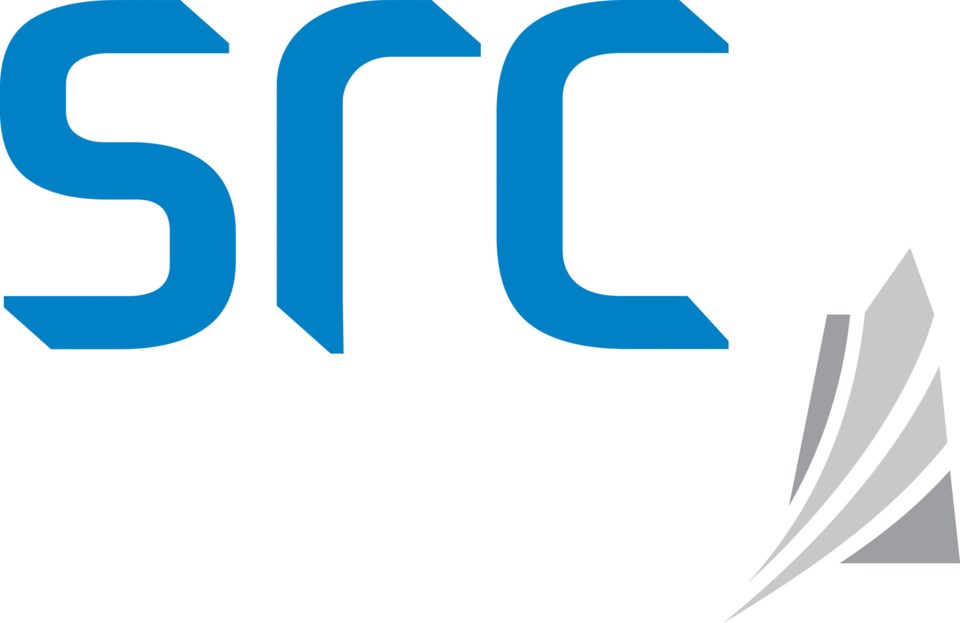Recently, the Saskatchewan Research Council (SRC) is formalizing the expansion of a mentorship program for Indigenous post-secondary students, while at the same time celebrating the success the program has seen in its first four years.
Through SRC’s Aboriginal Mentorship Program (AMP), First Nations, Inuit and Métis post-secondary students in science, technology, engineering and math (STEM) can connect with an SRC mentor in the same or similar disciplines and gain work experience through a hands-on summer job at SRC.
“The Government of Saskatchewan is dedicated to supporting training initiatives, like this one, that foster learning and development,” Minister Responsible for SRC Jeremy Harrison said. “This program assists Indigenous students training for rewarding careers in the science, technology, engineering and math fields.”
Since its inception in 2015, fifteen students have been welcomed into the program – two of which accepted permanent, full-time employment with SRC upon graduation and are still with the organization today.
“SRC is proud to continue fostering Indigenous participation in the STEM disciplines through our Aboriginal Mentorship Program,” SRC Mining & Minerals Vice-President Craig Murray said. “Because of both our mentors and students’ efforts, along with the support of our partners, this program has achieved significant success in just three short years. To be able to expand on that will help to ensure this program’s continued future success.”
Through a Memorandum of Understanding (MOU) between SRC and the University of Regina, both organizations will work collaboratively in the promotion of this program to students in the Regina-area. Additionally, a second MOU between SRC and Gabriel Dumont Institute Training & Employment will help guarantee funding for Métis students in the program for the next three years.
“We are very pleased to be partnering with the Saskatchewan Research Council in support of Indigenous students engaged in science, technology, engineering and math programs,” Provost and Vice-President (Academic) Dr. Thomas Chase said. “The focus of the MOU on connecting Indigenous students with employment, training and mentorship opportunities with SRC is aligned with our 2015-20 Strategic Plan priorities of student success and Indigenization.”
“This partnership with SRC’s Aboriginal Mentorship Program has been successful in supporting Métis students in STEM disciplines to learn and grow both academically and personally,” Gabriel Dumont Institute Executive Director Geordy McCaffrey said. “To date, six Métis students have participated in the program. Five have graduated with engineering degrees and found employment. The sixth, an Industrial Systems Engineering student, has just started the program.”
AMP is proudly supported by SRC’s Technology-in-Action Fund – a perpetual memorial fund created by the late Ian and Pearl Wahn to support Saskatchewan’s entrepreneurial spirit. It also receives financial support from the Government of Canada through the Gabriel Dumont Institute Training & Employment, Saskatoon Tribal Council and Regina Treaty/Status Indian Services.
SRC is one of Canada’s leading providers of applied research, development and demonstration (RD&D), and technology commercialization. With more than 350 employees, $70 million in annual revenue and 71 years of RD&D experience, SRC provides services and products to its 1,500 clients in 20 countries around the world. For more information, view SRC’s website at http://www.src.sk.ca.
The University of Regina—with campuses located on Treaty 4 and Treaty 6 territories, the ancestral lands of the Cree, Saulteaux, Dakota, and Lakota nations and the homeland of the Métis—is a comprehensive, mid-sized university that traces its roots back to the creation of Regina College in 1911. Today, more than 15,000 students study within the University’s 10 faculties, 25 academic departments/schools, 18 research centres and institutes, and three federated colleges (Campion College, First Nations University of Canada, and Luther College). The University of Regina has an established reputation for excellence and innovative programs that lead to undergraduate, graduate, and doctoral degrees. In 2017, the University of Regina was ranked in the Top 200 Best Young Universities in the world by Times Higher Education.




